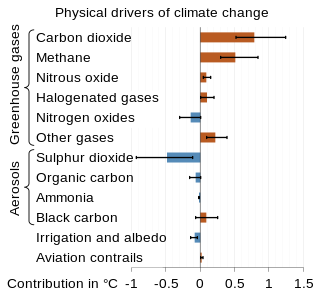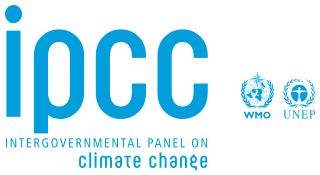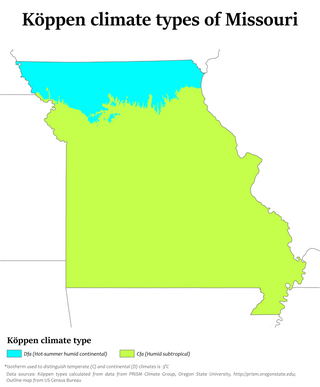
The scientific community has been investigating the causes of climate change for decades. After thousands of studies, it came to a consensus, where it is "unequivocal that human influence has warmed the atmosphere, ocean and land since pre-industrial times." This consensus is supported by around 200 scientific organizations worldwide, The dominant role in this climate change has been played by the direct emissions of carbon dioxide from the burning of fossil fuels. Indirect CO2 emissions from land use change, and the emissions of methane, nitrous oxide and other greenhouse gases play major supporting roles.

The Intergovernmental Panel on Climate Change (IPCC) is an intergovernmental body of the United Nations. Its job is to advance scientific knowledge about climate change caused by human activities. The World Meteorological Organization (WMO) and the United Nations Environment Programme (UNEP) set up the IPCC in 1988. The United Nations endorsed the creation of the IPCC later that year. It has a secretariat in Geneva, Switzerland, hosted by the WMO. It has 195 member states who govern the IPCC. The member states elect a bureau of scientists to serve through an assessment cycle. A cycle is usually six to seven years. The bureau selects experts in their fields to prepare IPCC reports. There is a formal nomination process by governments and observer organizations to find these experts. The IPCC has three working groups and a task force, which carry out its scientific work.

There is a nearly unanimous scientific consensus that the Earth has been consistently warming since the start of the Industrial Revolution, that the rate of recent warming is largely unprecedented, and that this warming is mainly the result of a rapid increase in atmospheric carbon dioxide (CO2) caused by human activities. The human activities causing this warming include fossil fuel combustion, cement production, and land use changes such as deforestation, with a significant supporting role from the other greenhouse gases such as methane and nitrous oxide. This human role in climate change is considered "unequivocal" and "incontrovertible".
The National Climate Assessment (NCA) is an initiative within the U.S. federal government focused on climate change science, formed under the auspices of the Global Change Research Act of 1990.

The IPCC Third Assessment Report (TAR), Climate Change 2001, is an assessment of available scientific and socio-economic information on climate change by the IPCC. Statements of the IPCC or information from the TAR were often used as a reference showing a scientific consensus on the subject of global warming. The Third Assessment Report (TAR) was completed in 2001 and consists of four reports, three of them from its Working Groups: Working Group I: The Scientific Basis; Working Group II: Impacts, Adaptation and Vulnerability; Working Group III: Mitigation; Synthesis Report. A number of the TAR's conclusions are given quantitative estimates of how probable it is that they are correct, e.g., greater than 66% probability of being correct. These are "Bayesian" probabilities, which are based on an expert assessment of all the available evidence.

The Second Assessment Report (SAR) of the Intergovernmental Panel on Climate Change (IPCC), published in 1995, is an assessment of the then available scientific and socio-economic information on climate change. The report was split into four parts: a synthesis to help interpret UNFCCC article 2, The Science of Climate Change, Impacts, Adaptations and Mitigation of Climate Change, Economic and Social Dimensions of Climate Change. Each of the last three parts was completed by a separate Working Group (WG), and each has a Summary for Policymakers (SPM) that represents a consensus of national representatives.

Effects of climate change are well documented and growing for Earth's natural environment and human societies. Changes to the climate system include an overall warming trend, changes to precipitation patterns, and more extreme weather. As the climate changes it impacts the natural environment with effects such as more intense forest fires, thawing permafrost, and desertification. These changes impact ecosystems and societies, and can become irreversible once tipping points are crossed.

The IPCC Fourth Assessment Report (AR4) is a report on climate change created with the help of a large number of contributors, both scientists and governmental representatives. There has been considerable political controversy over a small number of errors found in the report, and there have been calls for review of the process used to formulate the report. The overwhelming majority view of scientists with expertise in climate change is that errors, when found, are corrected, and the issues as identified do not undermine the conclusions of the report that the climate system is warming in response to increased levels of greenhouse gases, largely due to human activities.
The Burtoni Award was created in 2003 by a group of leading experts and policy makers in the field of climate change. It is named for the Canadian science pioneer Ian Burton. Its purpose is to recognize outstanding contributions to the science of adaptation to climate change. The award is named after the first recipient of the award, Ian Burton, an emeritus professor at the University of Toronto and a pioneer in the field of adaptation to climate change and extreme events and disasters. Ian has contributed to three assessment reports of the IPCC and the recent Special Report on Extremes (SREX).
The United States Global Change Research Program (USGCRP) coordinates and integrates federal research on changes in the global environment and their implications for society. The program began as a presidential initiative in 1989 and was codified by Congress through the Global Change Research Act of 1990, which called for "a comprehensive and integrated United States research program which will assist the Nation and the world to understand, assess, predict, and respond to human-induced and natural processes of global change."
A climate change scenario is a hypothetical future based on a "set of key driving forces". Scenarios explore the long-term effectiveness of mitigation and adaptation. Scenarios help to understand what the future may hold. They can show which decisions will have the most meaningful effects on mitigation and adaptation.
Michael Calvin MacCracken, has been chief scientist for climate change programs with the Climate Institute in Washington, D.C., since 2002; he was also elected to its board of directors in 2006.

The contributions of women in climate change have received increasing attention in the early 21st century. Feedback from women and the issues faced by women have been described as "imperative" by the United Nations and "critical" by the Population Reference Bureau. A report by the World Health Organization concluded that incorporating gender-based analysis would "provide more effective climate change mitigation and adaptation."

Sonia Isabelle Seneviratne is a Swiss climate scientist, professor at the Institute for Atmospheric and Climate Science of the ETH Zurich. She is a specialist of extreme climate events.

Climate change in Iowa encompasses the effects of climate change, attributed to man-made increases in atmospheric carbon dioxide, in the U.S. state of Iowa.

Climate change in Missouri encompasses the effects of climate change, attributed to man-made increases in atmospheric carbon dioxide, in the U.S. state of Missouri.
Fourth National Climate Assessment (NCA4) 2017/2018 is a 1,500 page two-part congressionally mandated report by the U.S. Global Change Research Program (USGCRP)—the first of its kind by the Trump administration, who released the report on November 23, 2018. The climate assessment process, with a report to be submitted to Congress every four years, is mandated by law through the Global Change Research Act of 1990. The report, which took two years to complete, is the fourth in a series of National Climate Assessments (NCA) which included NCA1 (2000), NCA2 (2009), and NCA3 (2014).

Climate change in Ohio is of concern due to its impacts on the environment, people, and economy of Ohio. The annual mean temperature in Ohio has increased by about 1.2 °F (0.67 °C) since 1895. According to the United States Environmental Protection Agency, "All regions of Ohio have warmed."

Katherine Calvin is NASA's Chief Scientist and Senior Climate Advisor. In July 2023, she was elected co-chair of the Intergovernmental Panel on Climate Change (IPCC) Working Group III. As an earth scientist at the Joint Global Change Research Institute (JGCRI), she has researched human use of global resources using Earth modeling systems at JGCRI under the direction of Pacific Northwest National Laboratory (PNNL) and the University of Maryland. She has contributed to the third US National Climate Assessment as well as two special reports by the Intergovernmental Panel on Climate Change (IPCC).
Joeri Rogelj is a Belgian climate scientist working on solutions to climate change. He explores how societies can transform towards sustainable futures. He is a Professor in Climate Science and Policy at the Centre for Environmental Policy (CEP) and Director of Research at the Grantham Institute – Climate Change and Environment, both at Imperial College London. He is also affiliated with the International Institute for Applied Systems Analysis. He is an author of several climate reports by the Intergovernmental Panel on Climate Change (IPCC) and the United Nations Environment Programme (UNEP), and a member of the European Scientific Advisory Board for Climate Change.










